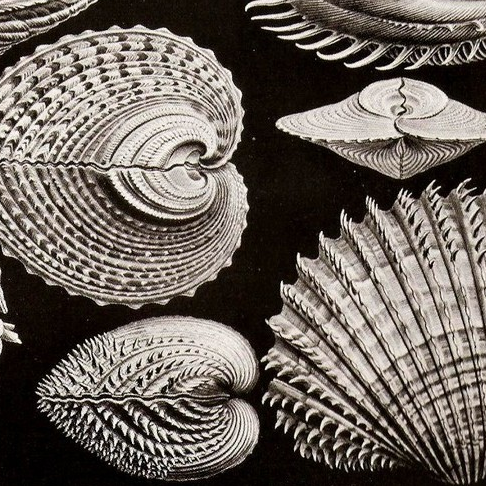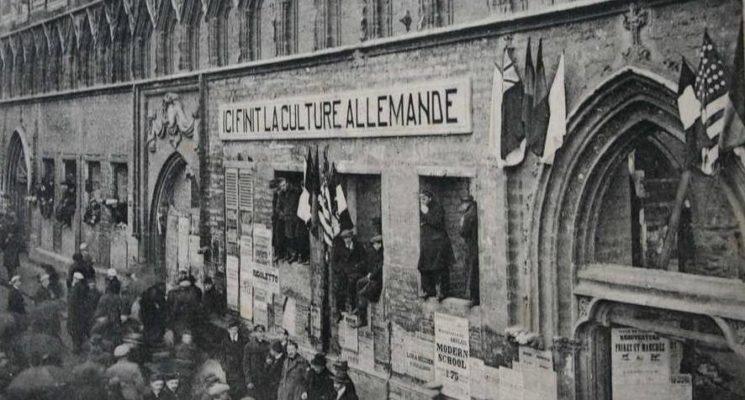In 1919, with the experimental verification of general relativity by the English astronomer, physicist and mathematician Sir Arthur Stanley Eddington, Albert Einstein’s theory came to be celebrated worldwide. Newspapers across the globe hailed Eddington’s observations as definitive proof of Einstein’s postulates on gravitation.
In one country, however, newspapers largely ignored the historic event. In the Kingdom of Belgium, the verification of general relativity triggered a lukewarm response at best. And, newspapers that did cover Einstein’s work focused more on his German nationality than on his work. As the Flemish newspaper De Schelde wrote in November 1921: “We know that Einstein did not sign the manifesto of 93,[1] [but] he is, in the end, though Israeli, a German scholar … a Mof, a Hun, a Barbarian, a Boche!”.[2]
Historians of science have studied the reception of one of the most influential scientific theories of the twentieth century for many national contexts. Belgium, however, has largely been neglected in international scholarship. This is remarkable, given the fact that Einstein and his theory became famous in a period that Belgium had just been overrun and half-destroyed by German forces during the Great War. What is more, the Kingdom has historically been an amalgam of diverse political cultures, which each responded quite differently to the rise of modern science, of which Einstein and his theory must be understood as clear exponents. Hence, for scholars interested in the interrelation between science, politics and culture, the early Belgian reception of relativity provides a unique case study.
In my master thesis, I study this Belgian reception of Einstein’s theory of relativity. I invoke a considerable amount of primary sources, including Belgian newspaper articles on Einstein and his theory,[3] scientific publications and correspondences.[4]
In my work, I offer several reasons why Einstein’s relativity theories were initially given the cold shoulder in Belgium. Some had to do with the configuration of Belgian science itself in the early twentieth century, which knew a much stronger tradition in engineering or applied physics than theoretical physics. But I also show World War I played a formative role in this regard. During the war, for example, the German occupation made it impossible for Belgian physicist Théophile de Donder, who did take Einstein’s work into consideration and even went as far as to claim priority on the covariant field equations of general relativity, to participate in the relevant international scientific networks. After the war, the hostility towards Germany among the larger Belgian public, made the country largely inimical to the ideas of a scientist who remained, after all, German.
I also show in my master thesis that, from the mid-1920s onwards, a more receptive climate did start to emerge in Belgium for the general theory of relativity. In scientific circles, De Donder played a large role in establishing this. In addition, in 1922, Einstein made a conciliatory visit to France, which was closely followed and positively evaluated by the Belgian press. Doubts on Einstein’s nationality gradually started to weaken and, in effect, the content of his work started to gain more attention in the public eye. “The splendidness of his works … has disarmed even the most disheveled patriots”, wrote the socialist newspaper Le Peuple on 2 April 1922.[5]
Still, Einstein’s ideas continued to be mediated by political and cultural circumstances specific to the Belgian context in the early twentieth century. With the diminishing influence of the Great War on the perception of Einstein’s work, the cultural diversity of Belgian science and society became all the more visible. Belgian Catholics, for example, labelled Einstein’s theory as a useful mathematical instrument but denied it had any philosophical significance. In 1922, for instance, the influential Neo-Scholastic philosopher Desiré Nys stated firmly that “the theory of relativity appears to us as a purely mathematical conception, an abstract synthesis, constituted of elements logically chained together by means of artifices of calculation. However, it would be reckless to regard the theory as a representation of reality”.[6] On the other end of the ideological spectrum, meanwhile, at the anti-clerical Free University of Brussels, De Donder and his students explored the relativistic theories of gravitation ever further in the 1920s. Other than most of their Catholic colleagues, they did not only embrace the mathematical framework of relativity, but also advocated its philosophy.
In short, in my master thesis I show that the Belgian reception of relativity in the early twentieth century, as well as the history of Belgian science in this period in general, deserves more attention from historians than it has currently received. I also argue that a better understanding of the political and cultural circumstances that influenced the reception of Einstein’s theories in Belgium may contribute to further research on how the Belgian context influenced scientific development in the international field of physics in this period. For one thing, it is quite possible to understand the early career of the Belgian priest and scientist Georges Lemaître—who would gain world fame as the father of the Big Bang theory of the origin of the universe—as a derivative of the early Belgian reception of relativity. More attention to such entanglements, I maintain, would open windows for important future research.
Have I piqued your interest? Contact me at s.l.tenhagen@uva.nl.
[1] In the manifesto of ninety-three, from Ocober 1914, German scientists and intellectuals expressed their solidarity with the German army’s actions on Belgian territory.
[2] De Schelde, 27 November 1921, Wetenschappelijke Toenadering?, p. 1
[3] Consulted in the Royal Library of Belgium in Brussels.
[4] Especially between Théophile De Donder and his colleagues, for example Dutch physicist Hendrik Lorentz. Letters consulted in De Donder Archives (Université Libre de Bruxelles) and Lorentz Archives (Noord Hollands Archief in Haarlem).
[5] Le Peuple, 2 April 1922, Einstein parle au Collège de France, p. 1
[6] Nys, D. (1922), La Notion d’Espace, Brussels : Sand, p. 321

